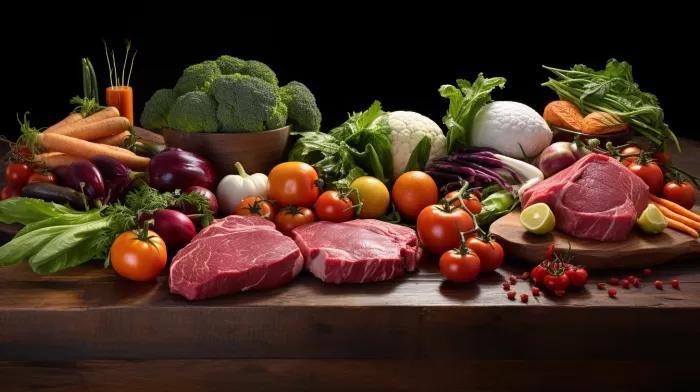If you find yourself feeling tired and worn out by the end of the day, scientists at UCLA have discovered that switching to a paleo diet – which prioritizes energizing foods – can have remarkable benefits. In laboratory tests, researchers found that animals who were fed fresh food similar to the paleo diet had lower body weight, more energy, and better cognitive function compared to animals eating fast foods.
The Paleo Diet
The paleo diet is based on the idea that humans should eat the same foods our ancestors did thousands of years ago, during the Paleolithic era. This diet primarily consists of high-quality protein, such as meat and fish, alongside fresh fruits and vegetables, nuts, and seeds. Processed foods, grains, legumes, and dairy are all excluded from the paleo diet.
Weight Loss and Increased Energy
In the UCLA study, one group of animals was fed a diet rich in fresh, unprocessed foods similar to the paleo diet, while another group was given a diet full of processed, high-fat, high-sugar foods. The results showed that the group eating the paleo-like diet experienced significantly less weight gain, increased energy levels, and better overall cognitive function compared to the group eating the processed food diet.
The lead researcher, Aaron Blaisdell, noted that the processed food diet seemed to cause extra fatigue, leading to obesity. He suggests that people do not become fat because they are lazy; rather, a diet high in processed foods is causing both obesity and fatigue. Blaisdell himself has experienced significant improvement in his own health by following a paleo diet, reporting higher energy levels and weight loss.
Fighting Chronic Disease with the Paleo Diet
The paleo diet is rich in nutrient-dense whole foods that provide essential vitamins and minerals, as well as healthy fats and high-quality protein. This composition may be key to preventing or managing chronic diseases, such as obesity and diabetes. By reducing processed foods and focusing on whole, unprocessed ingredients, you can experience a higher level of energy and vitality.
Foods to Include
If you’re considering adopting a paleo diet to improve your overall energy levels and health, here are some foods to include in your meal plan:
- Meat: This includes grass-fed beef, pork, and lamb. Free-range poultry, such as chicken, is also a great option.
-
Fish and seafood: Wild-caught fish, such as salmon, mackerel, and other healthy cold-water fish, are rich in beneficial omega-3 fatty acids.
-
Vegetables: Focus on dark, leafy greens, such as spinach and kale, as well as colorful vegetables, like bell peppers and sweet potatoes.
-
Fruits: Berries, such as strawberries, raspberries, and blueberries, are packed with antioxidants, vitamins, and fiber. Limit fruits high in sugar.
-
Nuts and seeds: Almonds, walnuts, chia seeds, and flaxseeds are all good options. Consume these in moderation due to their high-fat content.
-
Healthy fats: These include olive oil, coconut oil, and avocado.
Foods to Avoid
To reap the full benefits of the paleo diet, avoid the following food groups:
- Processed foods: This includes fast food, frozen meals, and packaged snacks.
-
Grains: This group includes wheat, barley, oats, and corn.
-
Legumes: Beans, lentils, and peanuts are off-limits in the paleo diet.
-
Dairy: Milk, cheese, and yogurt are not allowed when following the paleo diet.
-
Refined sugar: Replace sugar with natural sweeteners, such as honey and pure maple syrup.
Adopting a paleo diet may be the key to feeling more energized, focused, and healthy. By swapping out processed foods for whole, nutrient-dense options, you can greatly improve your overall well-being. Although transitioning to a new dietary lifestyle can be challenging, the results are well worth the effort.



